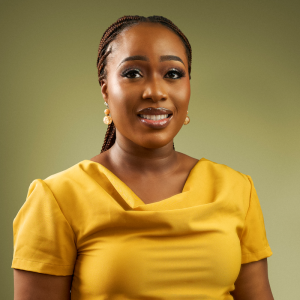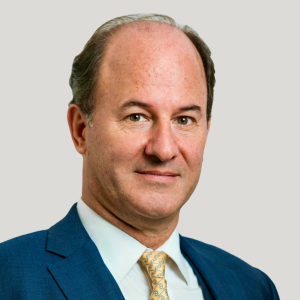The episode examines the rising global volatility driven by geopolitical tensions, policy unpredictability (especially under the Trump administration), and structural fiscal challenges, emphasising the need for adaptive thinking rather than traditional economic models.
While fears of the US dollar losing dominance have gained momentum, these are seen to be largely exaggerated. There is no credible "first domino" indicating a collapse, highlighting that recent reactions are more about market positioning than actual structural decline.
The conversation explores how long-term demographic trends and short-term political cycles have strained fiscal stability in the US and globally. Discretionary defence spending is rising, especially post-Ukraine war, complicating long-term fiscal planning.
Businesses, especially in emerging markets, must adopt robust treasury functions, diversify partnerships, and leverage digitalisation to hedge against risks like tariffs, supply chain fragility, and market volatility.
Global investors are cautiously reallocating capital amid uncertainty. There's a shift toward high-yield and debt assets in emerging markets rather than equities, with digitalisation and tokenisation emerging as tools for resilience and new investment models.

Watch Previous Episodes Here
In today’s increasingly volatile global environment, how do policymakers, institutions, and businesses navigate the tension between risk and opportunity?
In this latest episode of Kingsgate Brief, Dr. Oluwanbepelumi Olanubi, Executive Director at Kingsgate Advisors Institute, is joined by Mark Farrington, renowned Global Financial Market Expert, to examine how economic strategy must evolve in today’s high-risk climate.
This episode of Kingsgate Brief explores the intersection of innovation and uncertainty, highlighting how strategic decision making, economic resilience, and agile policy responses can thrive even in unstable conditions.
Tune in for insights that matter.
EPISODE SUMMARY:
This segment discusses the current global landscape of economic uncertainty, driven by geopolitical tensions, shifting capital flows, and structural risks such as demographic pressures and fiscal imbalances. It examines how these uncertainties affect decision-making for investors, businesses, and governments, and emphasizes the need for strategic thinking and resilience. The conversation also highlights the importance of adaptive fiscal policies, strong institutional coordination, and innovative business models to navigate prolonged volatility.
Dr. Oluwanbepelumi Olanubi: Good morning, good afternoon, good evening, everyone, for tuning in again for another insightful episode of Kingsgate Brief. This is the official podcast of Kingsgate Advisors Institute, and this is part of our broader mission and our strategic role as a knowledge transmission platform where we empower individuals, businesses, investors, governments, and policymakers with accessible and actionable insights for them to make well-informed decisions.
My name is Dr. Oluwanbepelumi Olanubi. I am the Executive Director of the Institute, and today I am your host. As always, if you are new to this platform, we encourage you to subscribe to our YouTube channel. We’ve had a series of episodes that I believe are very insightful and you’re able to gain one or two things from it so please do well to turn on the notification button, follow us and of course view all our videos and as well follow our social media pages to also know what we’ve been doing and what we are up to.
For today, I will be looking at something very important, an issue that is very timely and is a burning issue because it affects our current global reality, perhaps the future of economic strategy. The question as to how countries, investors, businesses, and even governments make smart economic decisions in a world marked by volatility, risk, and deep uncertainty. We are living through a time of global shifts. We are seeing rising geopolitical tensions across countries globally, we are seeing shifts in capital flows, fragmented supply chains, and also new patterns of global influence. So the traditional models of economic growth and stability are being tested, and the question is no longer what should we do? I think the more important thing to ask now is, how do we think differently?
So to explore these and more, I’m being joined by an exceptional guest today, one I would call a thought leader and a global financial market expert, Mark Farrington. Mark is a pioneer of global financial markets. He has over 35 years of experience as an innovator, as an early entrant in emerging markets, a discretionary global macro PM specialist, and a specialist in central bank monetary policy. He has worked in New York City, he has worked in Tokyo, Singapore, Sydney, and London. Also, he started as an interest rate and central bank strategist, followed by 27 years as a portfolio manager with Bankers Trust, BT Funds Management and Principal Global Investors. Mark lives in London, he has a master’s from the London School of Economics and Political Science, and he has a bachelor’s degree in International Finance from Oregon State University. Good morning, Mark, and thank you for joining me today.
Mark: Good morning, thank you for having me.
Oluwanbepelumi Olanubi: Yeah, so today we’ll be exploring issues related to global uncertainty, issues related to the uncertainty landscape, and how it’s shaping economic outcomes, how investors, governments, companies, and the likes are trying to understand these emerging risks and how countries in the global south like Nigeria and other emerging economies can think differently given the global reality. So, whether you’re a policymaker, global investor, business leader, or even a student of economics, this is an episode you want to sit back and listen to and get better informed, perhaps better prepared for the complexity of the world we live in today. So I’ll say let’s dive right into it.
To start, Mark, I’ll start with something I feel is very important and very timely to you because I read some of your recent articles related to issues with dollars and the tariffs. And to start, I would like to ask, given the tariff announcement we saw in April that sparked heightened uncertainty across global markets triggering a sharp decline in equity and bond prices, as well as in the US dollar, I want to ask, even the recent publication by BIS which also evidently pointed to the fact that edging activities of non-US investors have refuted the widespread explanation of a loss in confidence
in the US dollar by investors and the declining role in global capital market. This is a perspective that I think you likely agree with. I want you just to shed some more light on this issue, and what do you think as to how the non-US investors are taking position, and indeed are investors losing confidence in the US dollar?
Mark: Sure. Well, I would say that the year 2025 is still very young. I think many market participants and forecasters were caught off guard by the announcements in the first quarter from the Trump administration. And that triggered a sharp market correction. But I think that’s mainly as a result of position adjustment and hedging because there was perhaps overdue optimism beginning from the time that Trump technically won the election before he was actually sworn in in January. So it’s one of those classic cases of people being wrong-footed, caught off guard by the announcements and therefore having to rapidly adjust their portfolios in a similar way. So that’s not to understate some of the significant policy announcements that Trump has made. But what I would suggest is that the price action was exaggerated because of the starting point, and therefore, the extrapolation of that price action to analyse what you think has really happened to the underlying trend of the US dollar is very risky. And in my personal opinion, I think people are mostly wrong with the type of narrative, the de-dollarisation narrative that has gained momentum in the last three months.
But, you know, having said that, like I said, 2025 is still very young. The first quarter and the second quarter are two different halves. And so I think we see in the second half of this year, after Trump achieves some of his basic campaign pledges and initial policy strategies, that he will perhaps settle down and we will start to see less volatility in terms of the sharp pivots in his policy announcements and more incremental and adaptive policy announcements.
Guest

Executive Director, Kingsgate Advisors Institute

Global Financial Market Expert
Address:
54B, Adeniyi Jones Avenue, Ikeja, Lagos, Nigeria.
Contact:
+2347033052120
info@kingsgateinstitute.org
© Kingsgate Advisors Institute. All rights reserved.
Address:
54B, Adeniyi Jones Avenue, Ikeja, Lagos, Nigeria.
Contact:
+2347033052120
info@kingsgateinstitute.org
© Kingsgate Advisors Institute. All rights reserved.